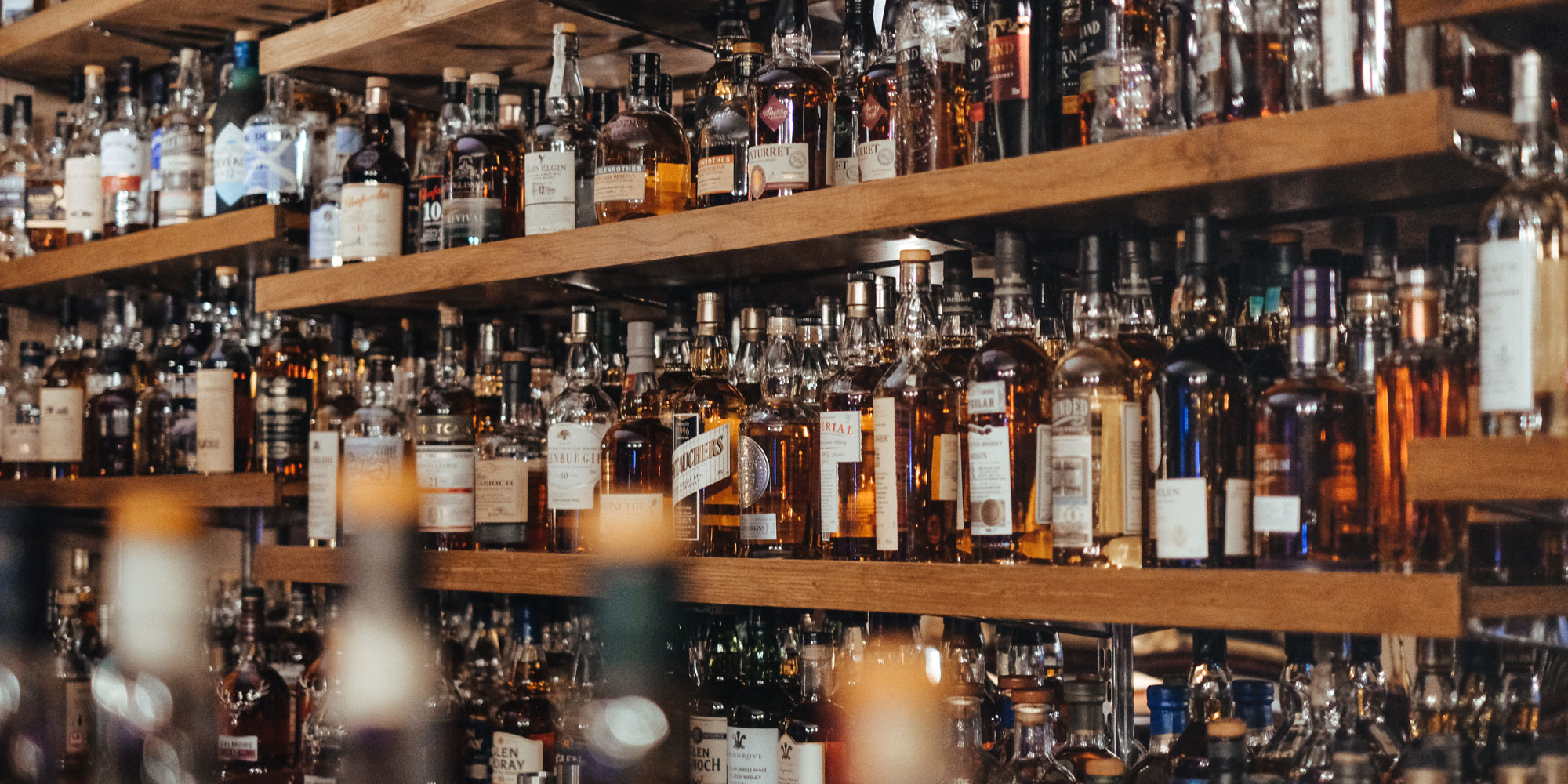How to Store Your Whiskey
How to Store Your Whiskey
Let’s say you’ve got yourself a nice little whiskey collection. You have your bourbon, rye, Scotch, and a bottle of Japanese whiskey.
It might not be the sort of assortment that merits an insurance policy. (Or maybe it is! La di da!) Regardless, you want to keep it in good condition. How, then, should you store your whiskey?
The short answer is don’t store it. Drink it all immediately and with great relish. Problem solved!
If that’s not an option, consider the five factors that can affect whiskey. Factors like light, oxygen, temperature, position, and time. Make your storage decisions accordingly.
LIGHT
Sunlight is the only thing that can degrade a bottle of whiskey. This is according to the Scotch Whiskey Association. Drinkers believe that prolonged light exposure can fade the color of brown spirits. This can result in “off” flavors like plastic or rubber.
“It’s debatable whether light degrades whiskey,”. This is a counter by Aaron Goldfarb, author of the book “Whiskey Hacks” and a VinePair columnist. “An issue for whiskey would be the sunlight overheating the bottle and causing evaporation.”
It’s an excellent point. UV rays might not immediately sour a great bottle of whiskey. They most certainly will speed up the evaporation process.
Want to play it safe? Store your favorite bottles in a shaded liquor cabinet or cellar, if you’ve got one. Keep them out of direct and prolonged sunlight. And drink them sooner rather than later.
AIR
Oxygen is an integral part of the whiskey-distilling process. This helps the spirit develop “floral aromas and exotic fruit notes,”. Gordon Motion, Erdington’s master blender, tells the Drinks Report.
However, by the time bottled whiskey hits your home bar, it has already reached peak maturity. Now, prolonged exposure to oxygen can only hurt your spirit.
Is your bottle of whiskey is less than half full? Conventional wisdom used to be to transfer it to a much smaller container. Such as a whiskey decanter, so less liquid exposes to less air. Modern drinkers should beware, Goldfarb says, because many commercial whiskey decanters contain lead.
“As you can guess, that ain’t a good thing. High-proof booze can cause the lead to start leaching into the whiskey you drink,” he says.
Thankfully, lead-free whiskey decanters are available. Check the label before switching your whiskey to another vessel.
TEMPERATURE
It’s cool to keep whiskey and other distilled spirits like gin, rum, tequila, and vodka at room temperature. Maintaining a cool, consistent climate is important. More important than the number on your thermostat.
“Somewhere around 55 degrees is perfect but the cool and constant aspect is key,”. Rob McCaughey, who works with spirits in the Americas at Wine & Spirit Education Trust, says.
The freezer, with its extreme temperature shifts and flavor-masking, is no place for your favorite bottle. “Whiskey is all about the nuances of flavor and these become muted if it is too cold,” McCaughey says.
POSITION
Storing wine on its side can help protect it from oxygen exposure, but whiskey is best left standing tall. Spirits are more alcoholic than wine. At least 40 percent alcohol by volume (ABV), per TTB regulation, versus wines’ 12.5 to 14.5 percent ABV. If that boozy liquid stays in contact with a crumbly cork, the latter will degrade quickly. To keep your whiskey fresh and debris-free, store it upright.
TIME
Whiskey has no innate tannins and is highly alcoholic, so it does not “age” in its bottle like wine. “If you keep a 12-year-old bottle for 100 years, it will always remain a 12-year-old whiskey,”. Writes the Scotch Whisky Association.
In other words, “saving” a prized whiskey might work for those who love delaying their gratification. But, it does no service to what’s in the bottle. The best time to drink your best bottle of whiskey is probably right now.

